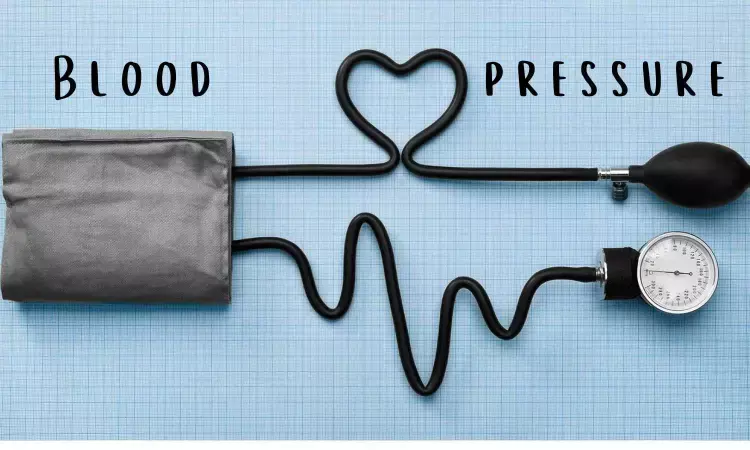- Home
- Medical news & Guidelines
- Anesthesiology
- Cardiology and CTVS
- Critical Care
- Dentistry
- Dermatology
- Diabetes and Endocrinology
- ENT
- Gastroenterology
- Medicine
- Nephrology
- Neurology
- Obstretics-Gynaecology
- Oncology
- Ophthalmology
- Orthopaedics
- Pediatrics-Neonatology
- Psychiatry
- Pulmonology
- Radiology
- Surgery
- Urology
- Laboratory Medicine
- Diet
- Nursing
- Paramedical
- Physiotherapy
- Health news
- Fact Check
- Bone Health Fact Check
- Brain Health Fact Check
- Cancer Related Fact Check
- Child Care Fact Check
- Dental and oral health fact check
- Diabetes and metabolic health fact check
- Diet and Nutrition Fact Check
- Eye and ENT Care Fact Check
- Fitness fact check
- Gut health fact check
- Heart health fact check
- Kidney health fact check
- Medical education fact check
- Men's health fact check
- Respiratory fact check
- Skin and hair care fact check
- Vaccine and Immunization fact check
- Women's health fact check
- AYUSH
- State News
- Andaman and Nicobar Islands
- Andhra Pradesh
- Arunachal Pradesh
- Assam
- Bihar
- Chandigarh
- Chattisgarh
- Dadra and Nagar Haveli
- Daman and Diu
- Delhi
- Goa
- Gujarat
- Haryana
- Himachal Pradesh
- Jammu & Kashmir
- Jharkhand
- Karnataka
- Kerala
- Ladakh
- Lakshadweep
- Madhya Pradesh
- Maharashtra
- Manipur
- Meghalaya
- Mizoram
- Nagaland
- Odisha
- Puducherry
- Punjab
- Rajasthan
- Sikkim
- Tamil Nadu
- Telangana
- Tripura
- Uttar Pradesh
- Uttrakhand
- West Bengal
- Medical Education
- Industry
Higher prenatal humidity and temperature could modulate BP changes across childhood

A recent study by Ana Goncalves Soares and team unveiled a significant association between prenatal urban environmental exposures and blood pressure trajectories in children by offering crucial insights into the long-term impacts of early-life surroundings. The study was published in the JACC Advances and included 7,454 participants.
This research employed an exposome-wide association approach after considering 43 prenatal urban exposures which ranged from noise and air pollution to built environment, natural spaces, traffic, meteorology, and food environment. This comprehensive approach uncovered the critical dynamics of how environmental factors during the pregnancy might shape blood pressure patterns from childhood into early adulthood.
With a mean yearly change of 0.29 mm Hg/y, the results indicated that higher humidity was associated with a faster increase in systolic blood pressure (SBP) during childhood. Also, higher temperatures were linked to a slower increase in SBP by suggesting a precise relationship between environmental factors and blood pressure regulation.
This study replicated its key findings in four independent European cohorts that comprising a total of 9,261 participants. The impact of humidity and temperature on blood pressure changes was consistent across these diverse populations which strengthens the credibility of the outcomes of tis study.
The results suggest that prenatal exposure to higher humidity and temperature could influence the trajectory of blood pressure changes throughout childhood. This study highlights the often-overlooked impact of prenatal environmental factors and paves way for understanding and potentially reducing the long-term health implications associated with growing up in urban environments.
Reference:
Gonçalves Soares, A., Santos, S., Seyve, E., Nedelec, R., Puhakka, S., Eloranta, A.-M., Mikkonen, S., Yuan, W. L., Lawlor, D. A., Heron, J., Vrijheid, M., Lepeule, J., Nieuwenhuijsen, M., Fossati, S., Jaddoe, V. W. V., Lakka, T., Sebert, S., Heude, B., Felix, J. F., … Timpson, N. J. (2024). Prenatal urban environment and blood pressure trajectories from childhood to early adulthood. JACC Advances, 3(2), 100808. https://doi.org/10.1016/j.jacadv.2023.100808
Neuroscience Masters graduate
Jacinthlyn Sylvia, a Neuroscience Master's graduate from Chennai has worked extensively in deciphering the neurobiology of cognition and motor control in aging. She also has spread-out exposure to Neurosurgery from her Bachelor’s. She is currently involved in active Neuro-Oncology research. She is an upcoming neuroscientist with a fiery passion for writing. Her news cover at Medical Dialogues feature recent discoveries and updates from the healthcare and biomedical research fields. She can be reached at editorial@medicaldialogues.in
Dr Kamal Kant Kohli-MBBS, DTCD- a chest specialist with more than 30 years of practice and a flair for writing clinical articles, Dr Kamal Kant Kohli joined Medical Dialogues as a Chief Editor of Medical News. Besides writing articles, as an editor, he proofreads and verifies all the medical content published on Medical Dialogues including those coming from journals, studies,medical conferences,guidelines etc. Email: drkohli@medicaldialogues.in. Contact no. 011-43720751


